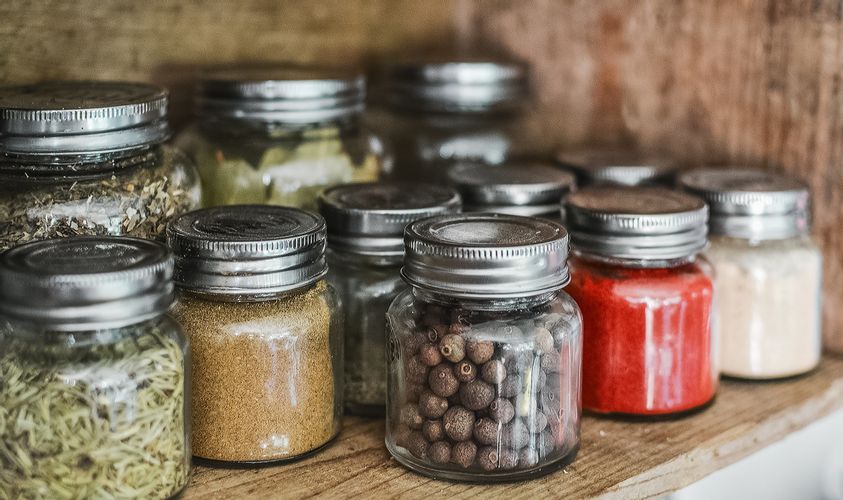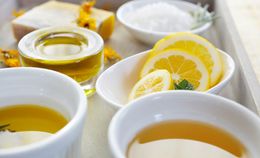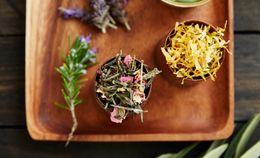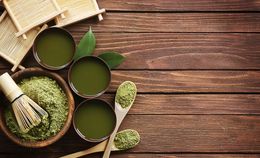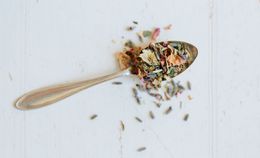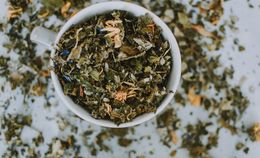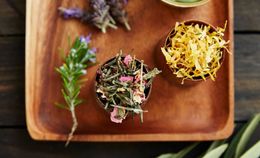MTHFR mutation is a genetic variation that is largely considered a “fad” if you rely on self-googling diagnosis methods. However, more and more professional doctors and healthcare practitioners are opening up to its reality for many of their clients and are seeking more ways to offer support. I’ve rounded up some of my fundamental herbal therapeutics to support those with an MTHFR mutation and am sharing them with you all here in this article. I like to draw from these therapeutics with my own clients who have an MTHFR mutation in addition to other crucial nutrition-based and lifestyle changes plus supplementation.
Gentle Detox
Many factors can influence why you have an MTHFR mutation, what your core symptoms, and how they express throughout the body. For many people, a build-up of heavy metals and other unprocessed toxins is a common side effect of having an MTHFR mutation since the MTHFR gene is also responsible for our body’s ability to eliminate toxins via methylation. Since many cells throughout the body and the liver (our master “filter” organ) rely on methylation for a variety of different functions, having an MTHFR mutation can create a variety of different undesirable symptoms. Depending on your specific mutation, your body becomes less able to break down certain toxins and remove heavy metals, increasing your risk for other disorders down the road.
So what can we do to help? Through promoting gentle detoxification throughout the body using specific herbs, we can help ensure that more of the toxins and heavy metals that have accumulated due to a less than optimal methylation ability in the body are properly removed. A few of my favorite herbs to utilize for gentle detoxification are chlorella (Chlorella vulgaris), spirulina (Arthrospira platensis), milk thistle (Silybum marianum), cilantro (Coriandrum sativum), and dandelion root (Taraxacum officinale). It is helpful to consult with your clinical herbalist and/or your primary healthcare practitioner to ensure that you have the proper dosage strategy while utilizing detoxifying herbs like these. And always be sure to drink extra water (plus electrolytes or a pinch of sea salt) to stay hydrated and promote healthy and gentle detoxification throughout the body.
Get the Lymph Moving!
Continuing on with the importance of promoting gentle detoxification throughout the body (since an MTHFR mutation inhibits our body’s natural ability to do so!), an essential part of healthy detoxification to keep our lymphatic system moving. While this can be as easy as engaging in gentle exercise, brisk walking, dry brushing, and sweating it out in an infrared sauna, there are a handful of helpful herbs that can help promote healthy circulation throughout the lymphatic system as well.
Some lymphatic-moving herbs I draw from include violet leaf (Viola odorata), astragalus (Astragalus membranaceus), and ginger (Zingiber officinale). With violet leaf, in particular, I love infusing this herb into a skin-nourishing carrier oil (such as jojoba oil, avocado oil, or sweet almond oil), then gently massaging it into the skin. Through this application, you can get a “double” lymphatic boost through the gentle yet stimulating massage and the transdermal absorption of the violet oil.
Modulating Inflammation
Keeping your inflammatory pathways in check is an essential part of helping address an MTHFR mutation. Given our body’s struggle to properly detoxify with an MTHFR mutation, an excess of toxins accumulating in the body often creates a pro-inflammatory state. As you might already know, when inflammation run rampant in the body for long periods of time, an array of other health issues can start cropping up sooner or later down the road. It is important to not simply “cover up” signs of inflammation by using anti-inflammatory herbs or other means without addressing the root cause of the inflammation at the same time. So in this case, it is essential to partner your gentle detoxification herbal strategy alongside inflammation-modulatory herbs so that both angles can be addressed at once. A few of my go-to herbs for fostering a healthy inflammatory response system are calendula (Calendula officinalis), turmeric (Curcuma longa), ginger, chamomile (Matricaria chamomilla), and white willow bark (Salix alba).
Staying In Tune With Your Body & MTHFR Mutation
Although it might feel overwhelming to connect your bodily symptoms with a subtle but largely impactful genetic variation like MTHFR, you’re not the only one out there! Every day there are more and more people professionally testing, analyzing, and diagnosing for this genetic variation and starting protocols to support their symptoms. When in doubt with what steps to take next, remember you can always consult your professional healthcare practitioner, clinical herbalist, or clinical nutritionist to receive support, advice, and guidance on your healing path. Do you have an MTHFR mutation or know someone who does? What therapeutics have been most helpful for you? Share with the Heal.me community in the comments below!

